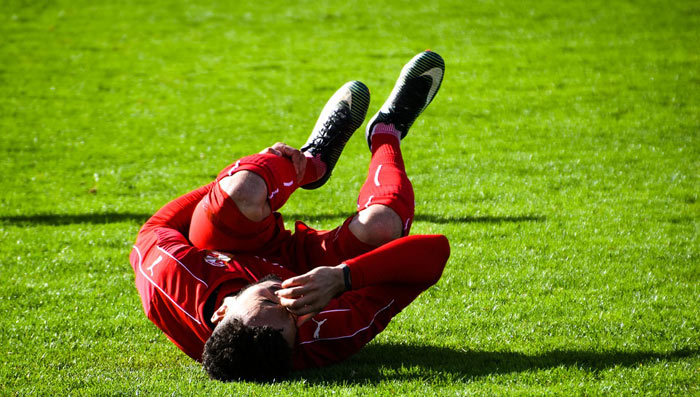
Almost every person has experienced cramps at least once in their life. Sudden involuntary muscle contractions are very painful and bring strong discomfort. This is especially frustrating at night, as sharp pain makes you wake up. This condition can last from a few seconds up to half an hour. After the spasm, you feel dull pain in the muscles for a long time.
Such a sharp tension of one or more leg muscles may occur once – then it requires no special treatment or medical attention.
However, if cramps occur very often, you need to be examined, as this condition, most likely, testifies to serious health problems. Only when the doctor determines the reason of leg cramps at night, he or she can prescribe the right treatment that will permanently relieve a person from the painful symptoms.
Experts classify such spasms according to the location, characteristics and causes. There are clonic seizures that are sharp, but quickly subsiding. There are more painful, tonic cramps, which can last a long time. They can affect the muscles of the arms, trunk, face, but the most frequent are leg cramps. These spasms happen at any age, often in children and the elderly. Pregnant women and active men, athletes and office workers suffer from them, as well.
Why cramps happen at night

During sleep, a person takes a horizontal position. In addition, the slowdown of all body processes makes cramps most frequent at night. The slowing of blood circulation in the extremities affects muscles particularly strong. At this time, tissues lack nutrients, such as magnesium, iron, potassium or calcium. This leads to seizures.
Some experts also believe that leg cramps appear at the time when people have nightmares. Vigorous exercise and an inability to relax before going to sleep can cause violent dreams accompanied by motor excitation.
Why cramps affect the legs

Poor circulation often affects the lower extremities. Legs are subjected to heavy load and overcooling during the day. Cramps can affect different muscles of the legs. It depends on the cause of seizures and the body position during sleep. Spasms can be localized in one place or affect several muscles.
Calf muscles are prone to cramping. Such spasms are the most painful. Muscles become very rigid. As a result, legs get too tense, and you cannot normally stand on your feet. In addition to the common causes of cramps, the calf muscle may be cramped at night due to varicose veins, edema, or the herniated disc of the lumbar spine.
Feet spasms always happen unexpectedly. The foot is cramped abruptly, but the pain is not so strong. The spasm may affect one toe or all toes, spreading to the arch of the foot and ankle joint. Such cramps are often due to circulatory disorders, uncomfortable shoes, hypothermia and a lack of physical activity.
Less frequently, spasms occur in the hip or thigh muscles.
Causes of leg cramps

This condition can occur even in completely healthy people. The main cause of leg cramps is the deterioration of the blood supply, neurological problems, or muscle cells electrolyte imbalance. They may affect both children and adults. To avoid discomfort, you need to know why leg cramps occur at night.
- Cramps can be caused by stress, excessive physical load, and severe muscle fatigue. They often occur after a long walk. Athletes, musicians, and drivers frequently have leg cramps.
- They also occur in people with flat feet, as a result of wearing uncomfortable shoes or being up on your feet all day.
- The lack of vitamins and minerals often causes spasms.
- Leg cramps are most frequent in pregnant women, in children during rapid growth, or in the elderly.
- Disorders of the nervous system or the internal organs are another cause of cramps.
- Some medications, poisoning, hypothermia or uncomfortable position during sleep can also cause spasms of the leg muscles.
Primary and secondary causes of cramps
Doctors distinguish primary and secondary causes of spasms. Primary, or idiopathic cramps, seem to arise for no apparent reason under the influence of external factors.
Such spasms can be caused by:
- an uncomfortable position during sleep, which makes muscles stiffen;
- hypothermia or poor blood circulation;
- strong muscle tension during the day;
- emotional stress, stressful situations;
- mercury, lead, food or drug poisoning;
- a strong increase in body temperature, for example, due to an illness, heat or sunstroke;
- abundant sweating, which makes the body lose lots of fluids and essential minerals;
- addictions: alcohol, caffeine, nicotine;
- frequent consumption of protein foods in the evening, which impedes the absorption of calcium;
- long-term administration of diuretic drugs, some birth control drugs, antacids, which slow down magnesium absorption.
Secondary causes of leg cramps include a variety of chronic diseases, circulatory or metabolic disorders, lack of vitamins and minerals.
Diseases causing cramps

Frequent night cramps may indicate serious health problems. Some diseases manifest themselves in muscle spasms. Sometimes it’s the only symptom, so it’s important to recognize the cause. There are a lot of such diseases.
- Most often, cramps are caused by poor blood circulation in the extremities. Because of this, muscle cells suffer from the lack of oxygen. This happens in patients with atherosclerosis, thrombophlebitis, and varicose veins.
- Various diseases of the lumbosacral spine can cause muscle spasms in the lower extremities. Sciatica, herniated discs, degenerative disc disease and other pathologies can lead to nerve pinching.
- Obesity is accompanied by serious metabolic disorders. In addition, people with excess weight have an increased load on the legs.
Infectious diseases of the nervous system such as encephalitis, meningitis can cause muscle cramps. This condition may occur even during flu. - High stress triggers the release of plenty of cortisol into the blood. This disrupts the electrolyte balance and affects the nerve endings responsible for muscle contraction.
- Diabetes mellitus is characterized by impaired blood glucose level. In addition, many diabetes patients regularly take insulin, which promotes magnesium excretion. Therefore, 90% of diabetic patients suffer from night cramps.
- Thyroid gland disorders. A lack of thyroid hormones slows down the metabolic processes.
- Polyneuropathy is a rare disease, which results in peripheral nerve damage and leads to muscle spasms, causing the restless leg syndrome at night.
- Intestinal upset, diarrhea, and dysbacteriosis lead to the lack of minerals causing cramps.
- A light traumatic brain injury may have no manifestations, except for cramps at night.
- Many infectious diseases, inflammation processes, and intoxications are also accompanied by muscle spasms.
Lack of mineral substances

In many cases, cramps are caused by a lack of micronutrients needed for neuromuscular contractions. This can happen because of malnutrition, disrupted intestinal microflora, and certain diseases. Cramps often occur when the body lacks the following substances:
- magnesium – participates in the processes of muscle contraction and blood circulation;
- calcium – the main element needed for healthy teeth, nails, hair and bones;
- iron – involved in the oxygenation of cells;
- vitamin D – facilitates calcium absorption
Why cramps occur in pregnant women

Leg cramps at night are a frequent phenomenon during pregnancy. Almost all pregnant women are faced with this. The reasons for this:
- excess weight increases the load on leg muscles during the day;
- enlarged uterus compresses the nerve endings and blood vessels in the legs;
- blood volume increases, causing swelling and varicose veins;
- a pregnant woman’s body lacks vitamins and minerals;
- hormonal changes.
Cramps in children

Most often, leg muscle cramps in a child occur due to rapid growth. This leads to poor circulation and lack of micronutrients. In addition, children’s bodies are very sensitive to external factors. That’s why an awkward position, tight shoes, overcooling or overheating can also lead to night cramps. They often happen due to overwork and increased the load on the feet. Congenital abnormalities, for example, flat feet, can also lead to muscle spasms. In case your child has cramps frequently, you should seek medical attention.
Many people wonder why leg cramps happen at night, but not everyone knows how to get rid of them. However, simple preventive measures and a healthy lifestyle will help prevent this painful phenomenon.






